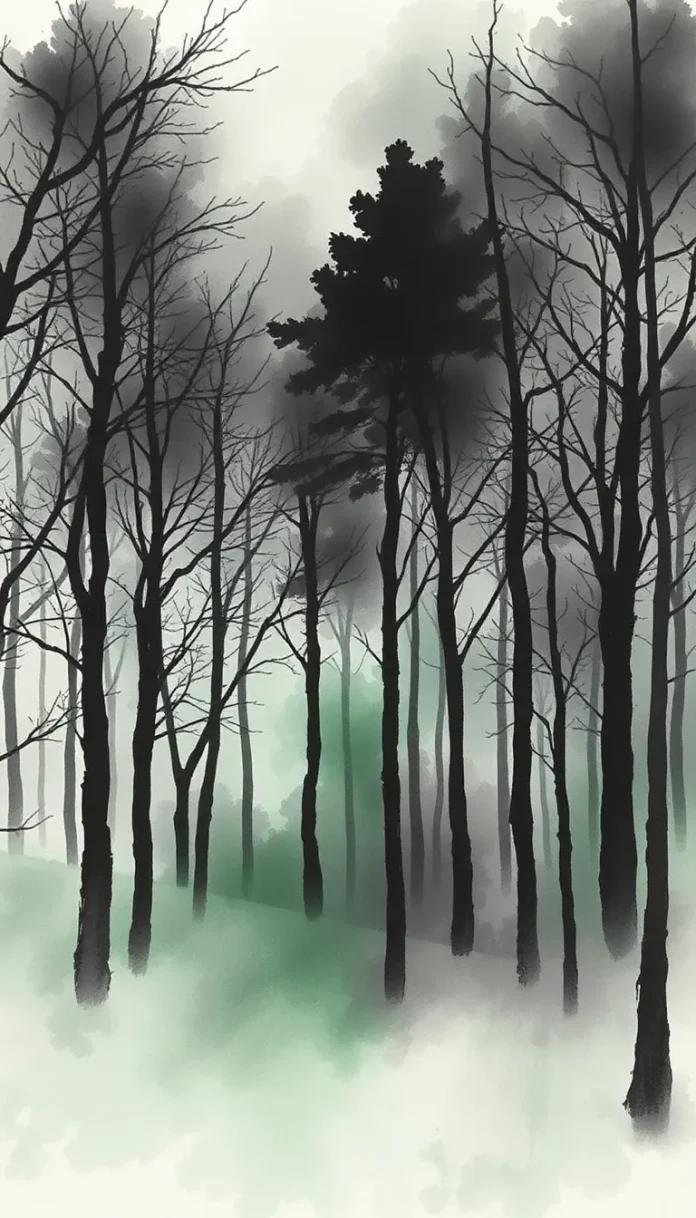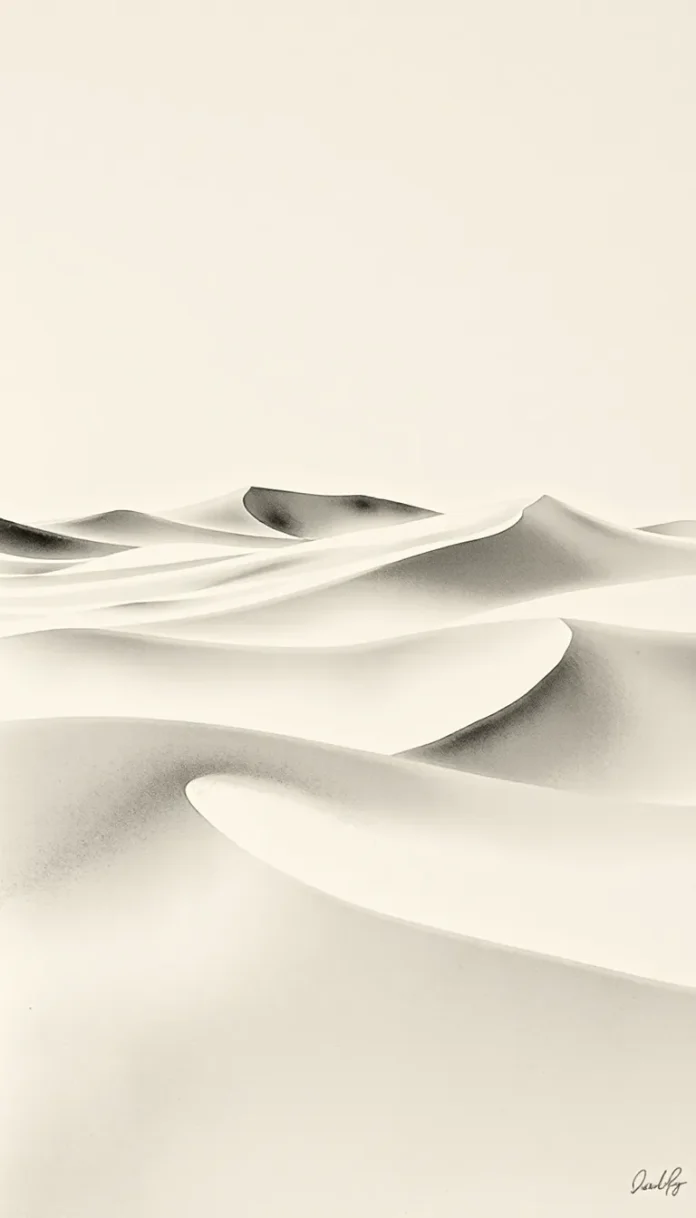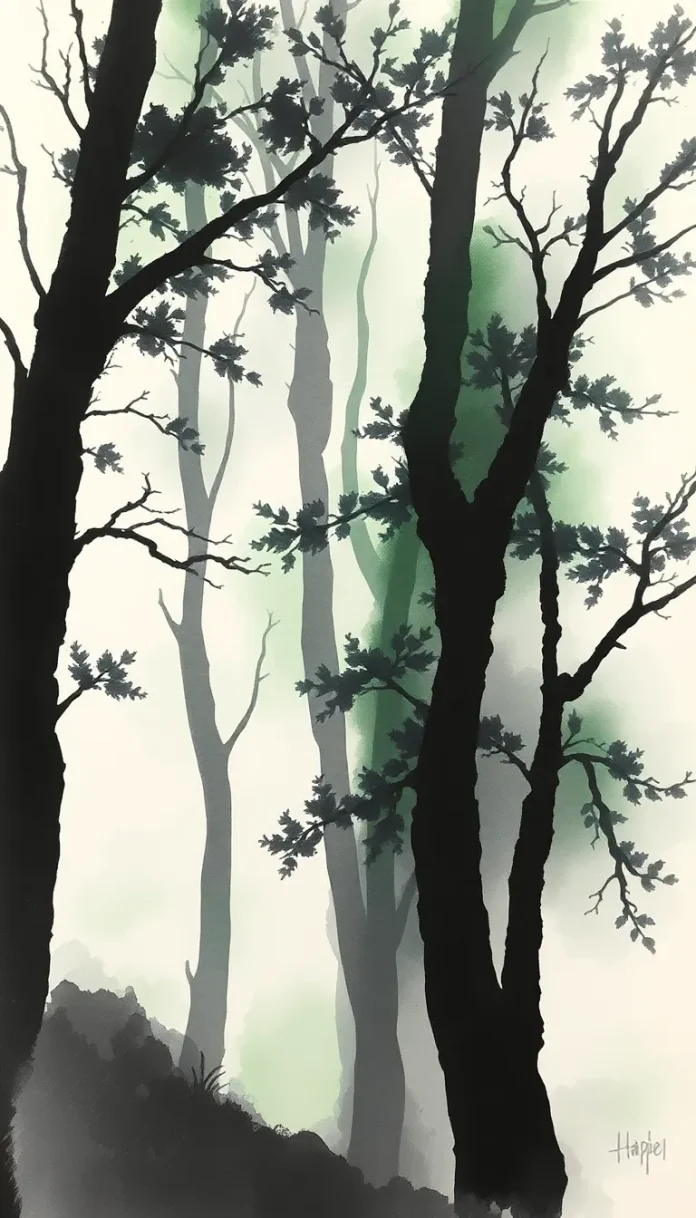The Masque of Entangled Souls
Âmes aux sentiments enchevêtrés, as the enigmatic wanderer was silently known, drifted between the somber corridors and veiled laughter of the assembled guests. The grand hall, adorned with faded splendor and ornate chandeliers that hung like suspended galaxies of forgotten dreams, was a repository of whispered regrets and radiant hopes alike. Every masked visage bore a secret; every fleeting smile was layered with the fragile interplay of sorrow and ecstasy. In that realm of shimmering illusions, the human condition was both exalted and weighed, rendered in notes of duality as profound as the chiaroscuro of life and death.
The ball was a testament to life’s paradoxes—each masked guest a mirror reflecting shadow and light, joy and lament, innocence and cynicism. Âmes aux sentiments enchevêtrés wandered amid these divers, enigmatic souls, pondering silently the delicate balance of their own nature. Their heart, a tender battleground of passion and melancholy, beat in time with the stately music that swirled like a nested waltz around the opulent room. As violins wept soft strains and piano keys murmured of ancient heartbreak, the wanderer’s hidden gaze roved over the assembly with a longing to decipher each silent tale.
Between dialogues elicited in murmurs behind the veils of anonymity, a series of delicate conversations emerged. “Do you not find,” intoned a masked gentleman in a tailored coat of midnight blue, his voice both gentle and pensive, “that our souls are compelled by the eternal dance of light and shadow, bound by the inexorable ties of love and despair?” To this, a masked lady adorned in a russet gown replied softly, “Indeed, our hearts bear the scars of time, a labyrinth of contradictions where tenderness and tumult reside in equal measure.” Such whispers, tender and vague, flowed through the night like a river of half-spoken truths, leaving Âmes aux sentiments enchevêtrés to wrestle with their own internal duality.
Underneath the vaulted ceilings of the ancient estate, where echoes of laughter and laments intermingled, Âmes aux sentiments enchevêtrés recalled a time of mirth and innocence—a past life, perhaps, luxuriating in the naive splendor of unburdened hope. Yet tonight, amid the prismatic interplay of shimmering candlelight and reflective mirrors, the melancholy of memory merged with the vibrations of the present, each glimpse a reminder of promises unfulfilled and dreams unclaimed. Even the rustic tapestries sagged with stories untold, their faded threads weaving narratives of bittersweet reminiscences that mingled with the chill of an inexorable fate.
The wanderer’s internal monologue, a delicate soliloquy of desire and introspection, unfurled like delicate lace in the confines of their mind. “Am I but a transient echo,” they mused silently, “a soul confined within the tempest of dual aspirations—to seek solace in the light, and yet to be possessed by the inevitable pull of shadows? Might the masquerade of my visage shield the ardor that burns, or does it merely camouflage the eternal discord within?” Such thoughts resonated in the corridors of the heart, where every beat echoed the turbulent clash of hope and melancholy, each pulse a somber hymn to the human condition.
As the waltz spiraled on, the masked revelers began to engage in a subtle game of revelation and concealment. In a moment of quiet intimacy, Âmes aux sentiments enchevêtrés found themselves face-to-face with a dashing figure whose countenance was half-hidden by an artful mask of ebony filigree. “The night is a mirror to our souls,” the figure intoned softly, his eyes echoing the depth of an unfathomable night sky. “Do you not feel that every masked step we take in this fragile dance is both an act of liberation and a surrender to fate?”
“But,” replied the wanderer in measured tones, “in our grand pursuit of truth, does the concealment of our self not render us vulnerable to the whims of destiny? Is it not the paradox of existence that we hide behind illusions to glimpse reality, even as our truths remain entangled in the labyrinthine pathways of our own emotions?” The question lingered, both as a tender inquiry and as a proclamation of the eternal struggle that defined the human spirit. The expressed duality—a yearning for revelation while fearing the loss of self—seemed to resonate with every soul present, each echoing the silent dilemma that lay at the heart of their existence.
Throughout the unfolding event, the estate became a living testament to duality. In its grand, decaying ballrooms and secret passages, nature itself played an intricate symphony—the gentle patter of rain tapping on ancient windows, the rustle of wind through withered rose bushes, each element a subtle allegory for the tumult within. The moon’s pallid glow filtered through stained glass, casting multifaceted patterns upon the floor, reminiscent of shattered dreams and eclectic hopes. In every reflected shard of colored light, Âmes aux sentiments enchevêtrés recognized both grandeur and despair—a poignant reminder that beauty is as transient as it is profound.
As the evening deepened, conversations turned toward introspection and the haunting question of identity. In hushed exchanges by the ivy-clad verandas, a pair of masked guests revealed their innermost musings. “In the quiet corridors of my soul,” whispered one, “I harbor a duality that is both a burden and a blessing. My facade, though regal in its grace, conceals within an endless conflict—one part dreams of golden dawns, the other resigns itself to twilight reveries.” The response, equally somber, came from another, “And yet, is it not this very contradiction that defines our essence? To be both the ephemeral spark of hope and the shadow of disillusionment: such is our nature, impermanent and yet all-encompassing.” Their dialogue flowed like a delicate sonnet, each phrase a testament to the eternal duel between light and shadow, passion and despair.
Within the inner sanctum of the estate, a secluded chamber served as a microcosm of the human experience. Here, the walls bore inscriptions of time—poems and epigrams etched in delicate cursive, narrating the sagas of lost lovers, of wanderers whose journeys intertwined with destiny. In the flickering lamplight, Âmes aux sentiments enchevêtrés paused to trace the worn carvings, each mark reminiscent of a heartbeat, each line a chronicle of the delicate interplay between aspiration and sorrow. The chamber exuded an ambiance of timeless mystery: a place where the observer could lose themselves in the labyrinth of memories and, for an ephemeral moment, reconcile with the dual nature of their own existence.
The wanderer’s silent soliloquy resumed in an intimate dialogue with the echoes of the past. “I have come to this forgotten domain, where the masquerade reveals not merely the superficial gaiety of assembly but the profound, often unspoken truths of our inner worlds. Here, each masked gaze is a window into the soul, a chiaroscuro of hopes and despairs that lay hidden behind ornate facades. Mayhap, in this dance of shadows and reflections, there exists a chance to glimpse the pure essence of being, even if only for an instant.” And with each whispered thought, the room itself seemed to pulse with the timeless cadence of forgotten lore, each reverberation a hymn to the indomitable spirit of human duality.
Even as the soft strains of another waltz began to thread their way through the atmosphere, a renewed tension filled the space—a stirring of possibilities, an aura of emergence and transformation. The dialogue between masked souls, at once filled with warmth and a distant ache, created a tapestry of intricate narratives. It was as if every step taken on the creaking wooden floors was a deliberate act—a silent challenge to the forces of destiny that conspired to shape the course of fate. Amid the procession of masked figures, Âmes aux sentiments enchevêtrés felt as though they were caught in an exquisite moment of metamorphosis, where the boundaries between dreams and reality blurred into an enigmatic haze.
At the heart of the masked ball, beneath the opulent glow of chandeliers and the shimmering tapestry of night shadows, events took an unexpected turn. An old, dignified clock, its hands suspended at the stroke of midnight, tolled with a sonorous melancholy that resounded through the ancient halls. The chime, both a dirge and an invitation, stirred something deep within the wanderer’s spirit—a longing to confront both the exhilarating heights and the profound depths of the soul. In the stillness that immediately followed, the estate seemed to hold its breath, as though anticipating a revelation that transcended the mere guise of festivity.
In that suspended moment, Âmes aux sentiments enchevêtrés experienced what could only be described as an epiphany—a fleeting vision wherein the duality of existence was cast in stark, luminous relief against the canvas of night. The ethereal clarity of that instant conveyed truths too profound to be expressed in the mundane language of everyday thought: that every joy carried within it a hidden sorrow, every vibrant laughter was tempered with the silent reminiscence of past griefs, and every ephemeral heartbeat danced in the delicate balance between dreams and despair. The specter of duality, ever-present and undeniable, was woven into the very fabric of the night, urging each soul to embrace the full spectrum of its own intricacies.
As conversations resumed with renewed fervor, a quiet dialogue between two kindred souls unfolded in a secluded alcove draped with sheer, midnight velvet. “Tell me,” whispered one softly, her voice tremulous yet resolute, “do you feel that the flame of your heart is at once a beacon and a burden? For within its golden glow lies the reflection of both hope and heartache.” The other, a man with eyes that mirrored the fathomless depths of a storm-tossed sea, responded with a quiet intensity, “I have learned that to live is to navigate a ceaseless tide of contrasting truths. Our spirits are divided—wrought from the luminous dreams of youth and the somber truths of our experience. And in that division, we find our greatest strength and our deepest vulnerability.” Their words, imbued with the wisdom of lived existence, painted a portrait of humanity as an intricate dance of dichotomies—a dance that neither ended with the final note of a song, nor with the closing of a curtain, but rather persisted in the quiet pauses between the measures.
Outside, the forgotten estate bore witness to the ephemeral beauty of a night suspended between revelation and concealment. The wild gardens, once meticulously manicured, now burgeoned with unruly splendor. Moonlight, filtered through a canopy of ancient oaks, wrought silvered symphonies upon the dew-laden ground. And as Âmes aux sentiments enchevêtrés wandered once more into the mysterious labyrinth of shadow and light, the conveyed essence of the masked ball—its celebration of the imperfection and beauty inherent in the human soul—resounded like a lingering echo in the cool night air.
At length, the revelry slowed and a tender silence fell over the gathering. Guests, still adorned in their elaborate masks, found themselves drawn into quiet clusters where reflective conversation replaced the earlier tumult of gaiety. The grand hall, now unburdened by the clamor of dance and dialogue, seemed to exhale a long-held sigh, as if the very stones of the forgotten domain whispered stories of lives lived in the luminous interplay of contradiction. In that vast quietude, each lingering gaze and every tentative smile served as a testament to the profound, unending search for meaning—a quest that transcended the boundaries of time and the ephemeral nature of earthly celebrations.
Still, amid the soft retreat of the nocturne, the inner stirrings of duality persisted unabated in the wanderer’s soul. Alone once more in a secluded corridor, Âmes aux sentiments enchevêtrés closed their eyes and let the muted murmurs of the past and present converge in a single, all-encompassing tide. “What is it,” they pondered in a soliloquy as intricate as lace and as sorrowful as a distant lament, “that binds us so irrevocably to the enigma of our own nature? Are we, as fragile mortals, destined to live forever in the tension between what we aspire to be and what we are compelled to be? And is it not in that very tension—the constant wane between light and shadow—that the song of our existence is composed?” The query, left unanswered, floated in the thin air like a secret yet to be revealed—a mystery to be pondered in quiet moments yet fulfilled only by the ceaseless passage of time.
The corridors, lined with portraits of silent ancestors whose eyes reflected both pride and sorrow, became an allegory for the labyrinth of the human heart. Every door and every window, dusted with the languorous touch of forgotten years, bore testimony to an existence steeped in a delicate duality—the juxtaposition of exuberant hope against the inevitable coil of despair. As the wanderer gently traced the edges of an intricately carved frame depicting a long-lost muse, a soft murmur escaped their lips: “We are, each one of us, the keepers of an eternal masquerade—ever balancing the scales of aspiration and resignation, beauty and pain.” And in that quiet reverberation, the timeless dialogue of the human soul was inscribed upon the very air of the forgotten domain.
The journey through that mystical estate, a grand ballet of silent reflections and whispered soliloquies, approached its denouement with an air of gentle, yet unresolved finality. While the night’s festivities had dwindled to echoes and shadows, the essence of the masked ball endured—a living, breathing testament to the perennial struggle between light and darkness, hope and despair. In every lingering glance, in each carefully measured breath, a fleeting promise was intimated: that the quest for self, for meaning, for an understanding of the eternal duality that defines our human condition, is a journey without conclusion.
As the first pale hues of dawn began to creep over the horizon, casting a tender light upon the ancient stones of the forgotten estate, Âmes aux sentiments enchevêtrés found themselves standing at the threshold of possibility. The delicate interplay of night and morning merged into an ambiguous tableau of endless potential. Though the ball had ended, the journey—the quest to reconcile the tangled intricacies of the soul—was far from over. Each echo of the night, each memory of whispered dialogue and secret introspection, lingered in the air like an unanswered question, inviting further exploration and reflection.
The estate, with its rich tapestry of lost wonders and unspoken promises, remained a sanctuary not of conclusion, but of perpetual becoming. In the soft light of dawn, the masked guests slowly dispersed into the dawning day, leaving behind the reverberations of their intricate truths. And Âmes aux sentiments enchevêtrés, their heart a repository of dual dreams, stepped forth into the uncertain promise of morning—a path not clearly drawn, but one that beckoned with the allure of enduring mystery.
In that hushed, breathtaking moment, as day met night in a tender yet unyielding embrace, the wanderer paused to consider the infinitude of life’s paradox: the interplay of hope and futility, of vibrant longing and quiet resignation. The estate, like a forgotten fable, whispered of things that were, and of things yet to be. And in that quiet reverie, the soul acknowledged that the truth of human existence was not to be bound by finality, but to be celebrated in its endless, unfolding riddle.
Thus, as the masked ball faded into the annals of memory and the estate exhaled a timeless sigh, the journey remained ever open—a silent epitaph to a life lived in the delicate balance of duality. Within the depths of every soul, the dance between contradiction and unity continues, a ceaseless, enchanting refrain that transcends the confines of time and space, inviting all who dare listen to the eternal mystery of being.
And so, beneath the gentle light of a nascent dawn, the story lingers—a narrative of beauty and sorrow, of revelry and introspection, a tale that whispers to the hearts of those who seek and question, leaving its ending forever suspended in the liminal space between what is known and what may yet be.


